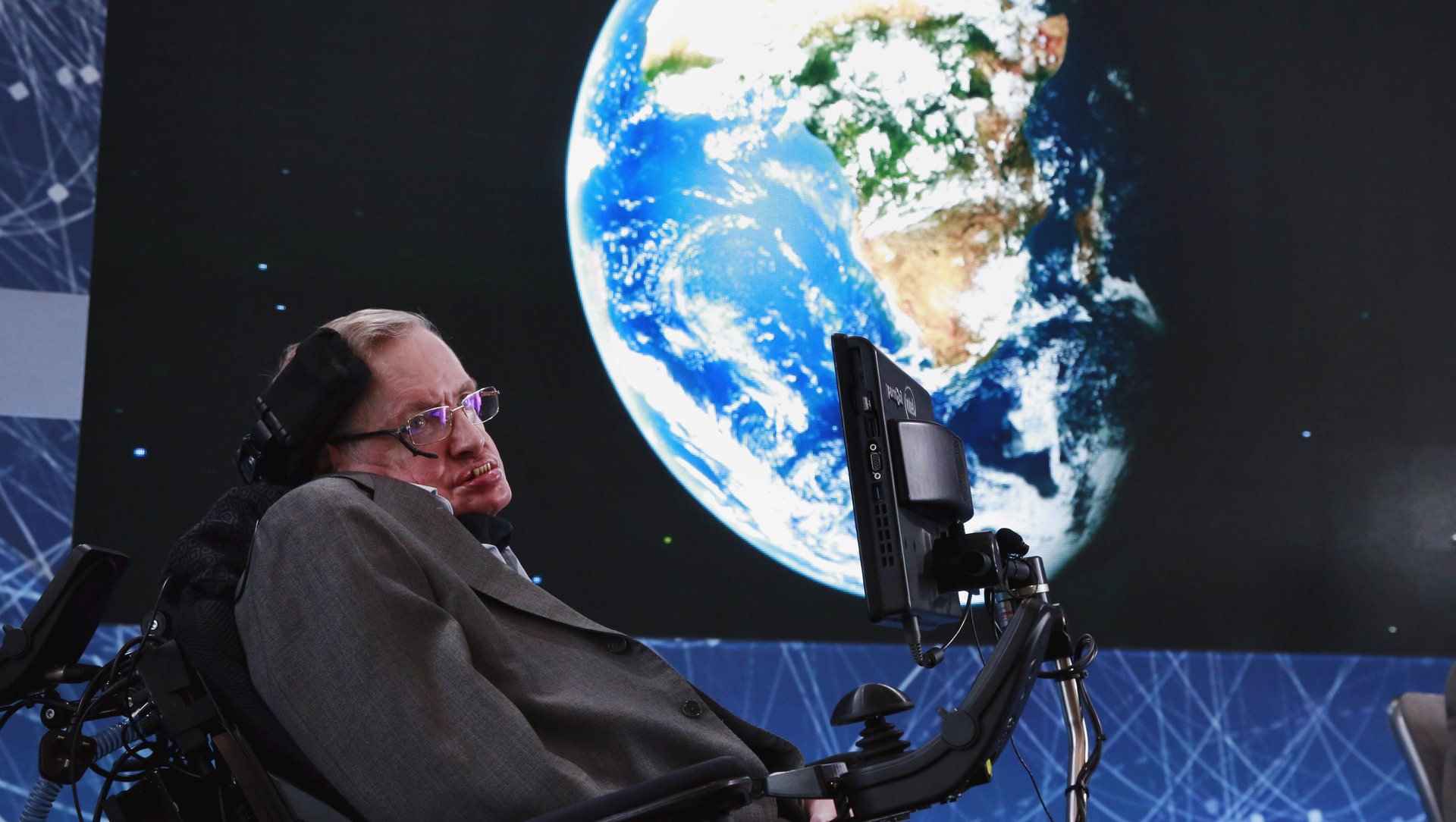Stephen Hawking says Trump’s climate policies are pushing Earth toward an irreversible “tipping point”
Famed physicist Stephen Hawking spent part of his 75th birthday celebration warning the public of the potentially catastrophic consequences of US president Donald Trump’s climate change policy.


Famed physicist Stephen Hawking spent part of his 75th birthday celebration warning the public of the potentially catastrophic consequences of US president Donald Trump’s climate change policy.
“We are close to the tipping point where global warming becomes irreversible,” he said yesterday (July 2) in an interview with BBC News. “Trump’s action could push the Earth over the brink, to become like Venus, with a temperature of two hundred and fifty degrees, and raining sulphuric acid.”
Hawking, who directs research at the Centre for Theoretical Cosmology at the University of Cambridge, UK, said climate change is one of the great dangers we face, and rebuked Trump for obfuscating its existence and withdrawing the US from the Paris Accords.
“By denying the evidence for climate change, and pulling out of the Paris Climate Agreement, Donald Trump will cause avoidable environmental damage to our beautiful planet, endangering the natural world, for us and our children,” he said.
Hawking’s comments come as the head of the Environmental Protection Agency (EPA), Scott Pruitt, who has already been cited by critics for dismantling the department from within, has recently launched a formal plan to challenge mainstream climate science.
Pruitt’s move to discredit the scientific consensus on global climate change is part of a pattern of actions the EPA has taken since Trump became president. As Quartz wrote in May:
Days after Trump’s inauguration, EPA employees were told to stop publicizing taxpayer-funded science. After Pruitt took over, he removed “science” from the mission statement of the agency’s Office of Science and Technology. He scrubbed a climate-science site from public view after two decades of the EPA hosting it online. Pruitt also dismisses more than 100 years of science when he says that he doesn’t believe that carbon dioxide is the primary driver of global warming. As attorney general of Oklahoma, Pruitt was a fierce critic of the EPA and a reliable ally of oil companies lobbying for looser emissions rules.
Hawking had previously expressed his misgivings to ITV News about then-presidential candidate Trump, who he called “a demagogue who seems to appeal to the lowest common denominator.”
Asked to explain the Trump “phenomenon,” the world-renowned physicist’s appeared to find himself uncharacteristically stumped: “I can’t,” he said simply.